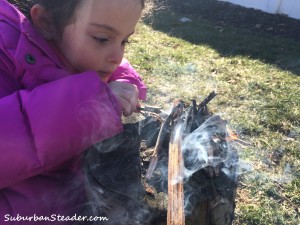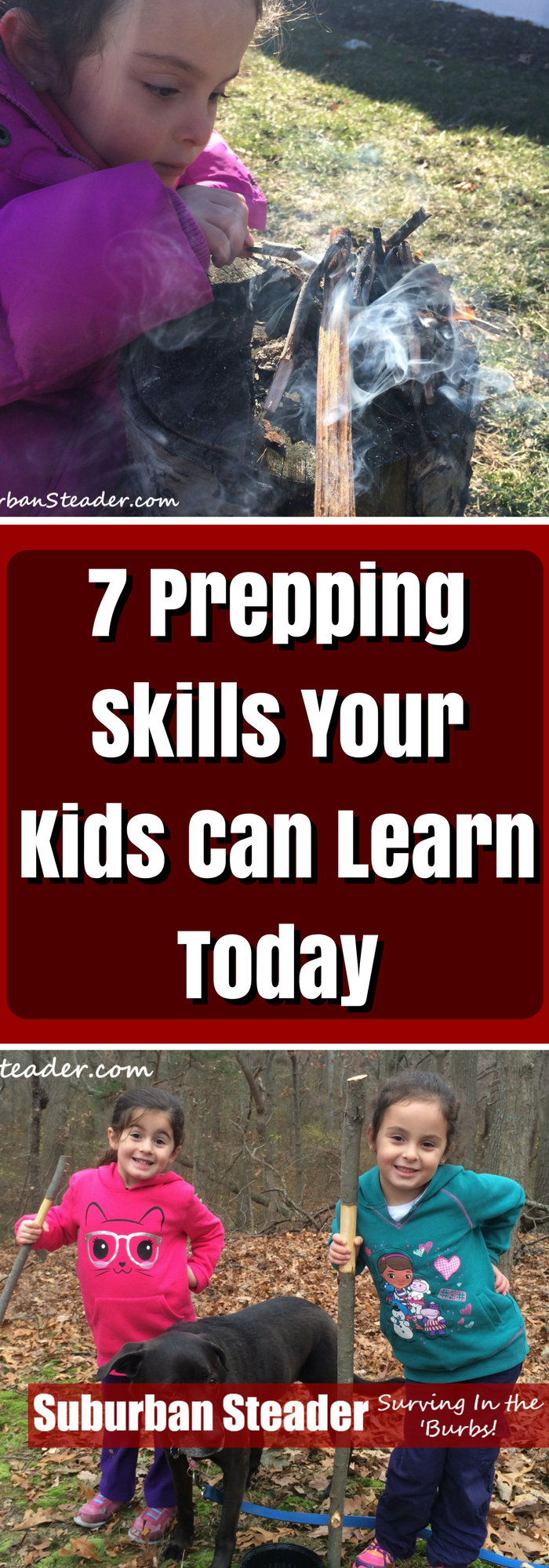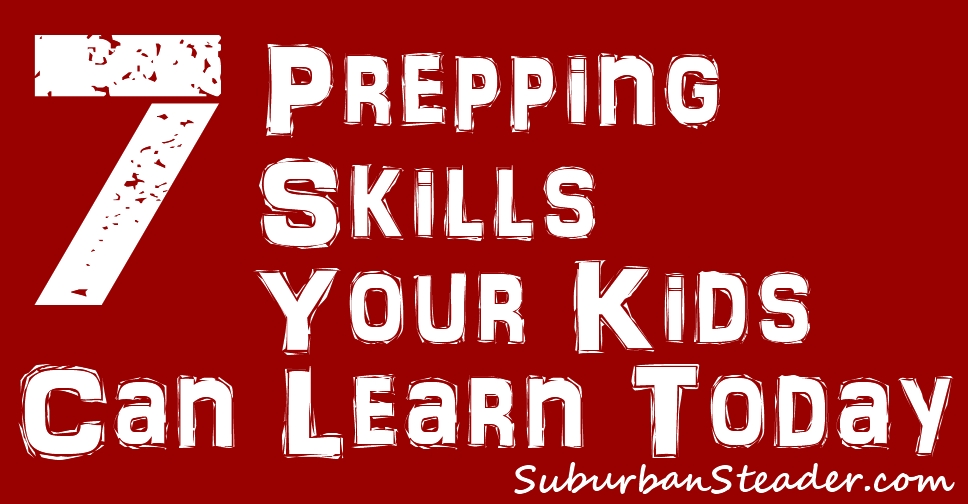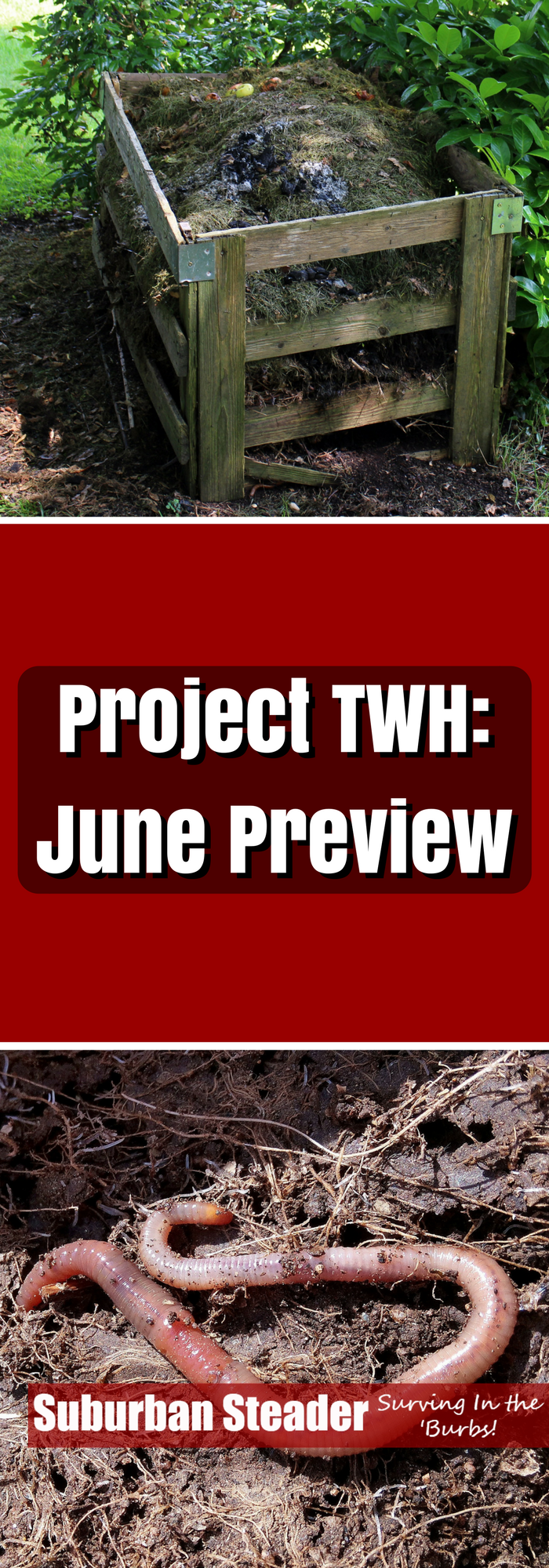7 Prepping Skills Your Kids Can Learn Today
Prepping with kids is never easy. And, as a suburban homesteader, you probably have a few running around your place. But, just because it’s difficult doesn’t mean that you can’t do it. Kids are amazingly resilient and are also sponges for knowledge. If you can introduce them to prepping skills wrapped in fun activities, you’re well on your way to making your kids more self-sufficient.
With that thought in mind, here are seven prepping skills your kids can learn today:
1. Basic Construction & Repair
Every suburban homesteader and prepper does work around the house. You could be building a new garden bed, fixing a leaking pipe, installing an appliance or doing major landscaping.
Whatever it is, you can get your kids involved. Have them hold tools for you and let them help – swing a hammer, twist a wrench, thread a screw, whatever.
My kids love getting involved and, while it slows down the job, the sense of accomplishment on their face when it’s done is worth it.
The bonus is that they’re learning prepper skills that will never leave them. My girls will be able to do all the plumbing in their house when I get done with them. They’re already better with a hammer than some of my friends.
 2. Hiking
2. Hiking
Getting your kids outdoors is key to teaching them just about any prepping skill or homesteading lifestyle.
A great way to achieve this goal is to take them on hikes. They don’t need to be huge hikes. For instance, I’m writing this in 2015 and my girls are five and a half years old. We go on a regular hike that takes us about a half to three-quarters of a mile into the woods. I’ve made a ‘camp’ (a few log benches in a semi-hidden ridge) that we go to.
We’ll bring a lunch and, in the colder months, make some hot chocolate. They’re free to play in the woods and explore. Everyone enjoys themselves but, most importantly, it’s an activity that is fostering a love for the outdoors in my kids. We’re also learning about the woods and I take the time to introduce bushcraft skills that are age appropriate.
3. Gardening
What kid doesn’t like getting dirty? And what suburban homesteader or prepper worth their salt doesn’t have a garden? Sounds like a match made in heaven to me.
Give the kids a section of the garden that is theirs. They can plant whatever they want in it. Let them tend to it, weed it, water it, etc. Don’t make it a chore but rather a learning experience.
My kids love watching the herbs grow because they’re fast. They’re not as interested in the slower growing plants so keep that in mind as well. Fast results will keep them interested.
4. Composting
Kids love getting dirty, but they also hate taking out the trash. Especially stinky trash. But my kids love bringing table scraps to the compost pile. They’ll bring out the leftovers from dinner and have me turn the pile. One of them will even pull the big worms out! We talk a little about their day and about what’s going on in the compost pile. It’s win, win for all involved. Compost is easy to make. If you don’t live in an area where you can compost, you can accomplish pretty much the same thing with a worm bin.
 5. Fire Starting
5. Fire Starting
Fire and knives are the two things I see most parents freak out about. Likewise, their two of the most important prepping skills you can learn.
The fears these parents have are not without merit – both activities are quite dangerous if not properly managed. That being said, even five and a half-year-olds are old enough to understand that they only do this kind of thing with a parent around.
If you walk them through the phases of making a fire – collecting kindling, tinder and fuel wood, build a fire bundle, etc – and make it a game, they’ll have a blast.
Plus, wait until you see the excitement on a little kid’s face when you create a fire from a fresnel lens. I guarantee it’ll be worth the work and patience.
6. Camping
Get them outside! Camping is an exciting adventure for everyone. It allows the kids to pretend they’re on some magic treasure hunt or with a group of warriors heading out on a grand adventure.
Whatever the scenario, camping always seems to get kids imaginations going. You can also build in some other skills here including hiking, fire starting, first aid and cooking.
Camping is an awesome, wholesome family activity that will bring you years of enjoyment and allow you to introduce your kids to numerous prepping skills.
7. Why We’re Prepared
Most of all, teach your kids why we prepare.
You don’t need to tell them about crazy politicians, EMPs or zombie apocalypses. That’s scary stuff that kids don’t need to hear.
You can concentrate on the fact that sometimes bad things happen – storms cause power outages, cars break down, people get hurt – and we need to be prepared to handle it. A strong mindset is probably the best prepper skill they can get their hands on.
There’s a great book called Jake and Miller’s Big Adventure: A Prepper’s Book For Kids that my kids love. It’s an awesome story about a boy, his dog and how they prepare for a (you guessed it) big adventure. Highly recommended reading!
Conclusion
These are seven ways to get your kids into the prepping and homesteading mindset. Are they going to be Rambo-esque survivalists? No way (do you really want them – or you – to?). Will they learn to enjoy the outdoors, think critically and evaluate situations for possible outcomes? Absolutely.
And that’s what it’s all about – teaching your kids to think for themselves and more towards a more self-sufficient mindset.


